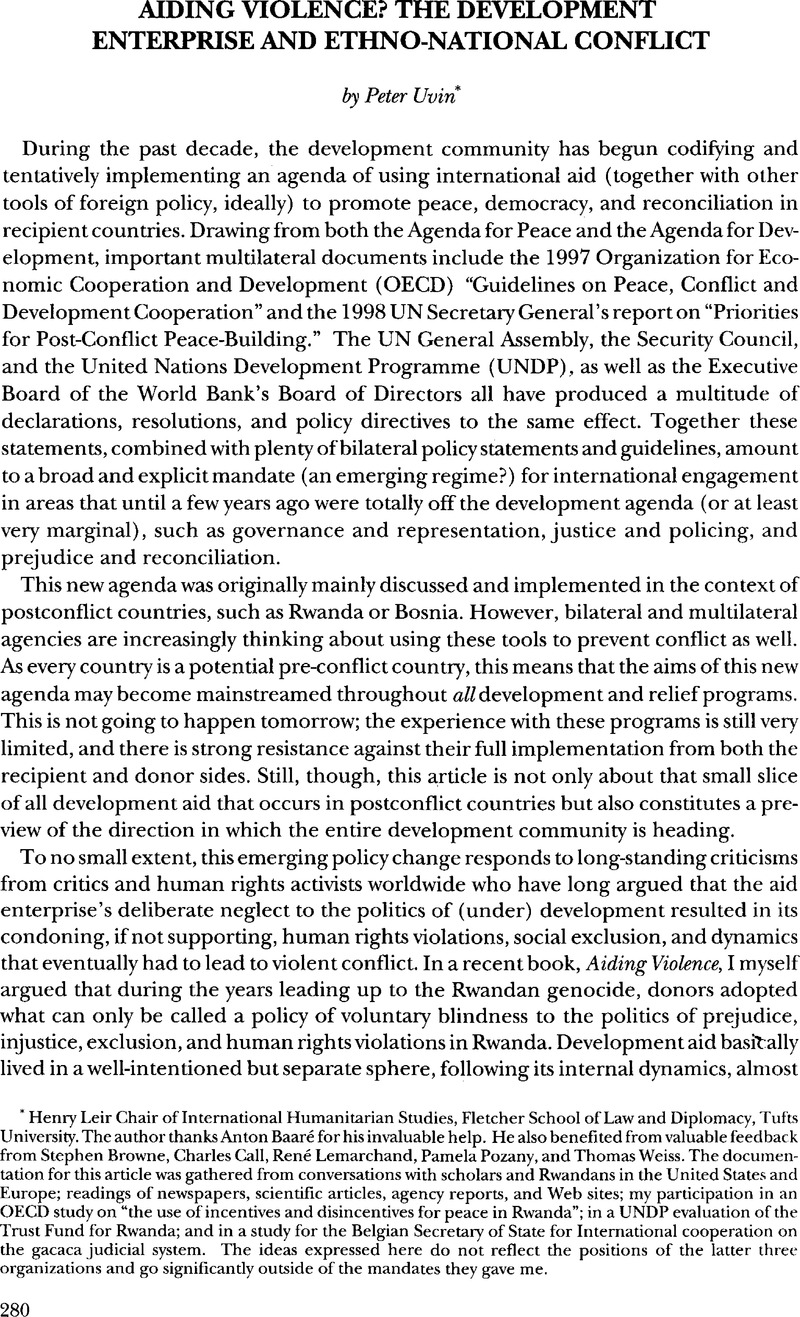Published online by Cambridge University Press: 28 February 2017

1 Braeckman, Colette, Cowardice and Conscience, 15 World Pol’y J. 99–104 (1999)Google Scholar.
2 Id.
3 Martin, Ian, Hard Choices After Genocide: Human Rights and Political Failure in Rwanda, in Hard Choices: Moral Dilemmas in Humanitarian Intervention 157, 159 (Moore, Jonathan ed., 1998)Google Scholar [hereinafter Hard Choices].
4 Anton Baaré, David Schearer, & Peter Uvin, Case Study: Rwanda (1999), at <http:www.oecd.org>.
5 Avocats Sans Frontiers, 1998 Rapport Annuel (1999).
6 Human Rights Watch, World Report 2000 (1999).
7 Amnesty International, Unfair Trials: justice Denied (1997), at <http://www.web.amnesty.org>; Advociats Sans Frontiers, supra note 4, at 6, 17.
8 Human Rights Watch, Leave None to Tell the Story: Genocide in Rwanda 749, 757 (1999).
9 Advocats Sans Frontiers, supra note 4; International Crisis Group, Five Years After the Genocide, in Rwanda: Justice in Question (1999), at <http://www.intl-crisis-group.org>.
10 Human Rights Watch, Rwanda: The Search for Security and Human Rights Abuses (2000), at <http://www.hrw.org>; Human Rights Watch, supra note 7; Amnesty International, Rwanda: The Troubled Course of Justice (2000), at <http://www.web.amnesty.org>; Amnesty International, Rwanda: Alarming Resurgence of Killings (1996), at <http://www.web.amnesty.org>.
11 Human Rights Watch, supra note 7, at 735; Amnesty International, Rwanda: Ending the Silence, supra note 9.
12 Jose Zalaquett, Moral Reconstruction in the Wake of Human Rights Violations and War Crimes, in Hard Choices, supra note 2, at 211.